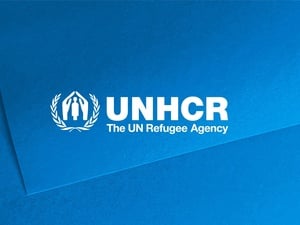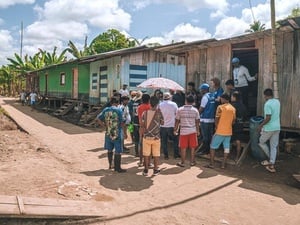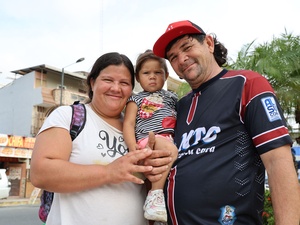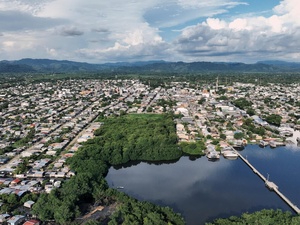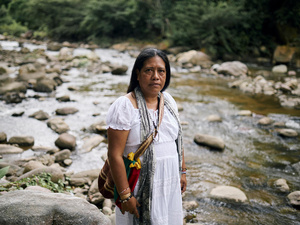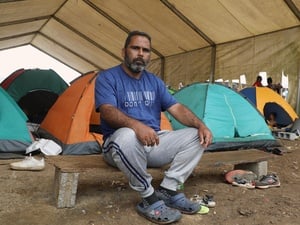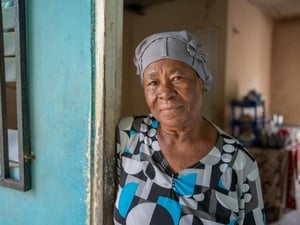UNHCR condemns Peace Community massacre in Colombia
UNHCR condemns Peace Community massacre in Colombia
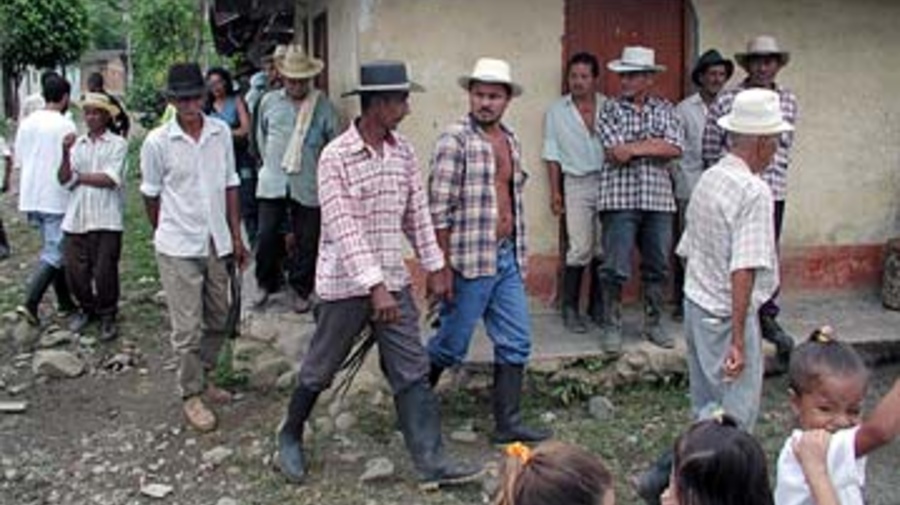
Members of the San José de Apartadó peace community, Urabá, Colombia.
GENEVA, Mar 1 (UNHCR) - The UN refugee agency has strongly condemned the brutal murder of eight people, including three children, from the peace community of San José de Apartadó in north-western Colombia, and has urged authorities to ensure the protection of community leaders and members of internally displaced persons' (IDP) associations throughout Colombia. The murders are the latest in a string of attacks that the community says have left 154 of their members dead since 1997.
"UNHCR offers its condolences to the San José de Apartadó community and calls on Colombian authorities to thoroughly investigate these deplorable crimes and to prosecute those responsible," said agency spokesman Rupert Colville at a press briefing in Geneva.
Local witnesses say that on February 21 unidentified armed men in military fatigues abducted a community leader and his family. The community leader, Luis Eduardo Guerra, was the founder of the San José de Apartadó peace community and had represented the community in negotiations with the government.
Guerra, his 17-year-old wife Bellanira, and his 11-year-old son Deiner, were taken to the property of another family belonging to the peace community - Alfonso Bolivar Tuberquia, his wife and their two children aged 6 and 2. The two families, together with another man, Alejandro Pérez Cuirez, were then brutally murdered and their bodies left in a shallow mass grave.
"These murders clearly show the difficult situation facing the peace communities and the risks confronting their leaders," said Colville. "In the last eight years, the Colombian state has not been able to undertake sufficient measures to protect and solve the problems faced by these communities."
Peace communities were established in the late 1990s in the Urabá region of north-western Colombia by people displaced by the conflict who were gradually beginning to return to their communities. Peace communities are committed to peaceful civil resistance and neutrality. They reject the presence in their territory of irregular armed groups and the regular army. In 1997, the Inter-American Commission for Human Rights specifically requested special protection measures on behalf of the San José de Apartadó peace community.
UNHCR staff based in Apartadó visited the community on February 25, soon after the news of the massacre first broke. Two more UNHCR staff, including UNHCR's Representative in Colombia, are scheduled to travel to San José de Apartadó on Wednesday to meet with the community and with military authorities in the area.
Since the community was founded in 1997, UNHCR has supported San José de Apartadó through community-strengthening projects, such as repairing the local school, carpentry and tailoring projects, credits for small businesses and general assistance in integrating returnees. UNHCR has also intervened with the local authorities on behalf of the community, in areas like education, health, security/protection, nutrition and food security.
The agency said on Tuesday it will continue working with San José de Apartadó and other communities at risk, in an effort to strengthen them and support them in the defence of their rights.
Meanwhile, elsewhere in Colombia, people continue to flee to the town of Bellavista in the north-western Chocó province, fearing impending clashes between armed groups in the area. The Afro-Colombian communities began fleeing their homes in mid-February, and since that time, the number of newly displaced people in Bellavista has reached nearly 1,500.
UNHCR plans to contribute to the building of four temporary shelters for the displaced people in Bellavista, following an agreement between the communities and the local authorities. UNHCR has also participated in preparing a contingency plan for assistance to people displaced in Bellavista.
A UNHCR team will go to Bellavista at the end of this week to meet with the leaders of nearby indigenous communities which are also at risk of displacement.
UNHCR's work in Colombia is aimed at protecting and promoting the rights of internally displaced people and strengthening the response of the government and civil society to forced displacement. It works in coordination with Colombian authorities, church groups, NGOs, IDP associations and other UN agencies.
More than 1.5 million internally displaced people are registered with the Colombian government, but NGOs estimate there could actually be over 3 million IDPs in the country. According to official sources, 74 percent of the displaced are women and children.


